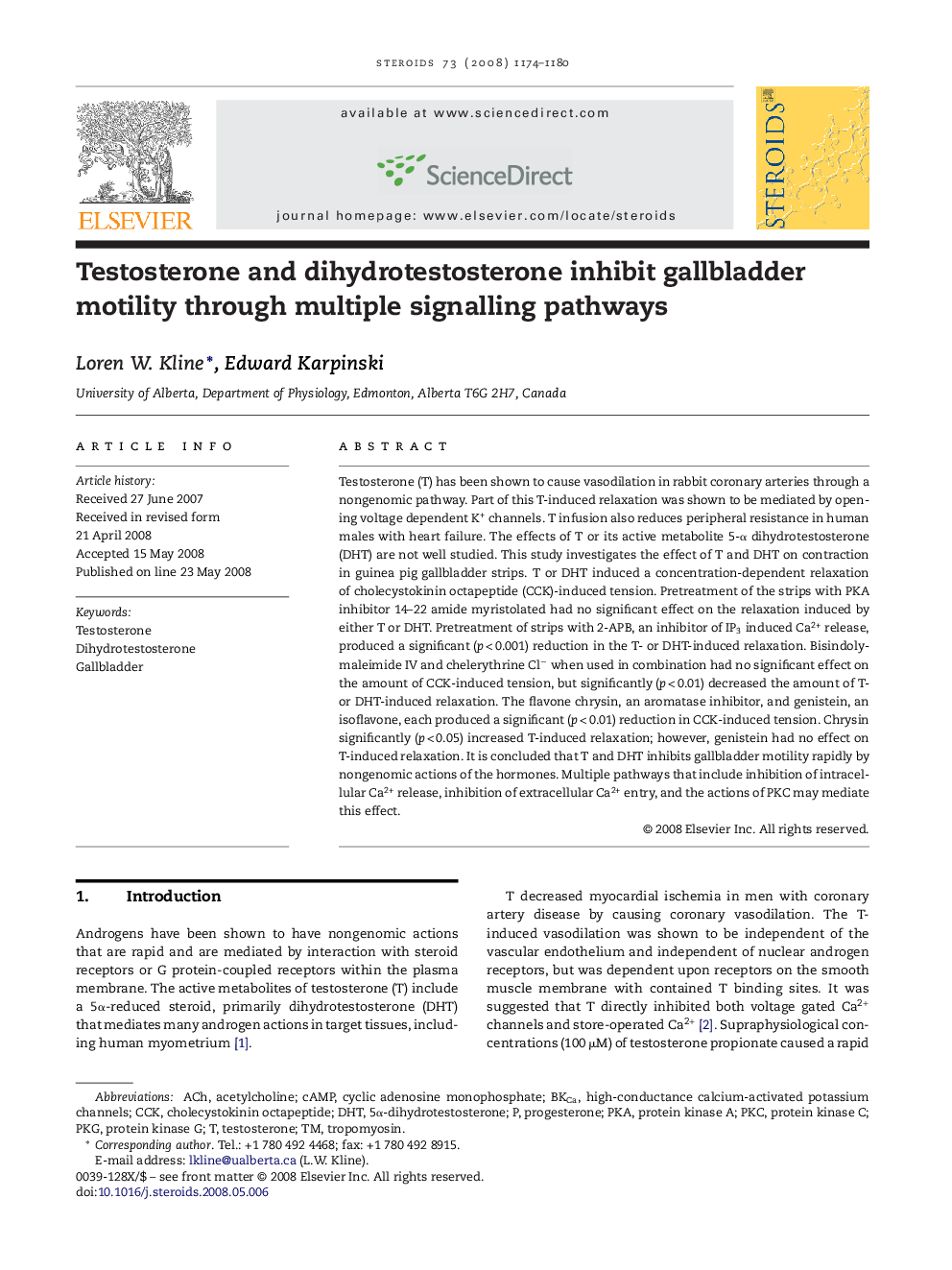| Article ID | Journal | Published Year | Pages | File Type |
|---|---|---|---|---|
| 2029435 | Steroids | 2008 | 7 Pages |
Testosterone (T) has been shown to cause vasodilation in rabbit coronary arteries through a nongenomic pathway. Part of this T-induced relaxation was shown to be mediated by opening voltage dependent K+ channels. T infusion also reduces peripheral resistance in human males with heart failure. The effects of T or its active metabolite 5-α dihydrotestosterone (DHT) are not well studied. This study investigates the effect of T and DHT on contraction in guinea pig gallbladder strips. T or DHT induced a concentration-dependent relaxation of cholecystokinin octapeptide (CCK)-induced tension. Pretreatment of the strips with PKA inhibitor 14–22 amide myristolated had no significant effect on the relaxation induced by either T or DHT. Pretreatment of strips with 2-APB, an inhibitor of IP3 induced Ca2+ release, produced a significant (p < 0.001) reduction in the T- or DHT-induced relaxation. Bisindolymaleimide IV and chelerythrine Cl− when used in combination had no significant effect on the amount of CCK-induced tension, but significantly (p < 0.01) decreased the amount of T- or DHT-induced relaxation. The flavone chrysin, an aromatase inhibitor, and genistein, an isoflavone, each produced a significant (p < 0.01) reduction in CCK-induced tension. Chrysin significantly (p < 0.05) increased T-induced relaxation; however, genistein had no effect on T-induced relaxation. It is concluded that T and DHT inhibits gallbladder motility rapidly by nongenomic actions of the hormones. Multiple pathways that include inhibition of intracellular Ca2+ release, inhibition of extracellular Ca2+ entry, and the actions of PKC may mediate this effect.
